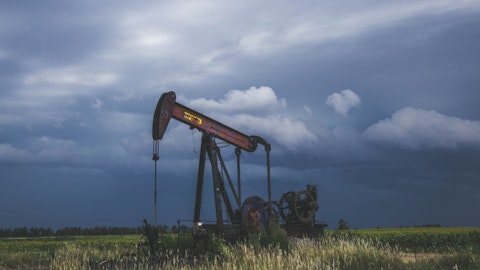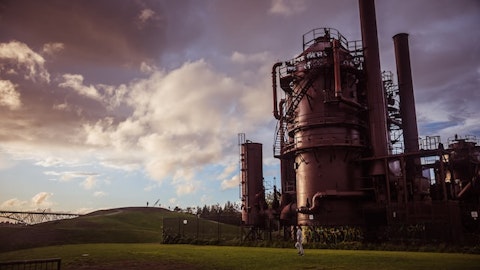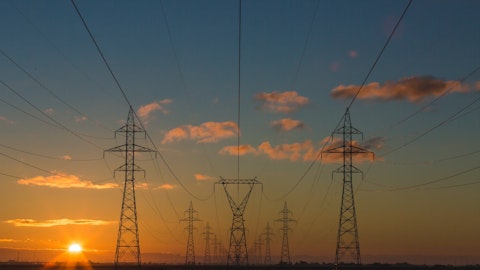across different areas. When I was speaking to the additional incremental opportunities, you’re on track. I think those opportunities will particularly be informed as we look at mechanisms and ability to realign with key policymakers and regulators on positioning the state to take advantage of some of the economic development opportunities, which will take some incremental investment and I think some real opportunities there. Now again, things differ a little bit and Missouri side the regulation is more constructive in terms of mitigating lag, and we’re aligned with other utilities in that state. So a lot of this comes down to working on mechanisms of Kansas, and that will inform how we shape our capital plan, particularly over time.
Steven Fleishman: Okay. And then maybe just one last thing on just that last point of Kansas because obviously, this would have been a relevant thing to be aware of kind of in the current rate case too in terms of perceived ability to — for future kind of growth and all the stuff. Just like is there any olive branches or things that have been shared that should give us any hope that the other folks are going to engage in a — along the lines of what you want as opposed to kind of what happened in this rate case?
David Campbell: Yes. I think people have to — we’ll have to demonstrate those results on the Kansas side, so it’s not the show-me side of our two jurisdictions. But non element of seeing that happen. What I think is the groundwork that creates a positive context of that discussion is the sheer amount of economic development potential that we see in Kansas. We know that it’s important for many stakeholders in the state to be positioned to take advantage of that because they see those opportunities and they know that for us to be in a position to meet — for example, I’ve mentioned over 600 megawatts of potential incremental capacity needs. If we’re in a wait if we always are waiting until it’s already there to build things and it’s harder to be in a position of attracted and meet it and the timeliness that’s required.
So I think that backdrop of economic development potential is a positive one to help advance the discussions. But there’s no question that we’ve got work to do on the capital structure front and on the insurance that we have competitive — the opportunity for competitive returns. So work in front of us. We do think that backdrop of a lot of economic potential and potential opportunity in Kansas is the right way to do it. We also think it’s the right frame to pursue that discussion outside the context of the biggest — such a big rate case, the first one in five years since we formed the company with unique global attention. So we think the time is now to work on and address that issue.
Steven Fleishman: Okay. All right. But you’re saying — you think it is, are you getting a sense that other people kind of get that too?
David Campbell: I think we’ve got the opportunity for us to constructive discussions. We’ve obviously got work to do to get it done.
Operator: Thank you. And one moment as we move on to our next question. And our next question is going to come from the line of Paul Patterson with Glenrock Associates. Your line is open. Please go ahead.
Paul Patterson: Hey, good morning. I just want to just I apologize for not completely following the capital structure issue. And that’s been asked a couple of times. What are I guess, if I’m understanding it and tell me where I’m wrong, you guys are planning on having discussions with them about getting to the ability to sort of have a basically that the utility capital structure would be looked at and the holding company in the context of how it’s treated in other jurisdictions like FERC and what have you. Is that the way to sort of think about it?
David Campbell: Yes. Paul, I think you’ve got it right.



